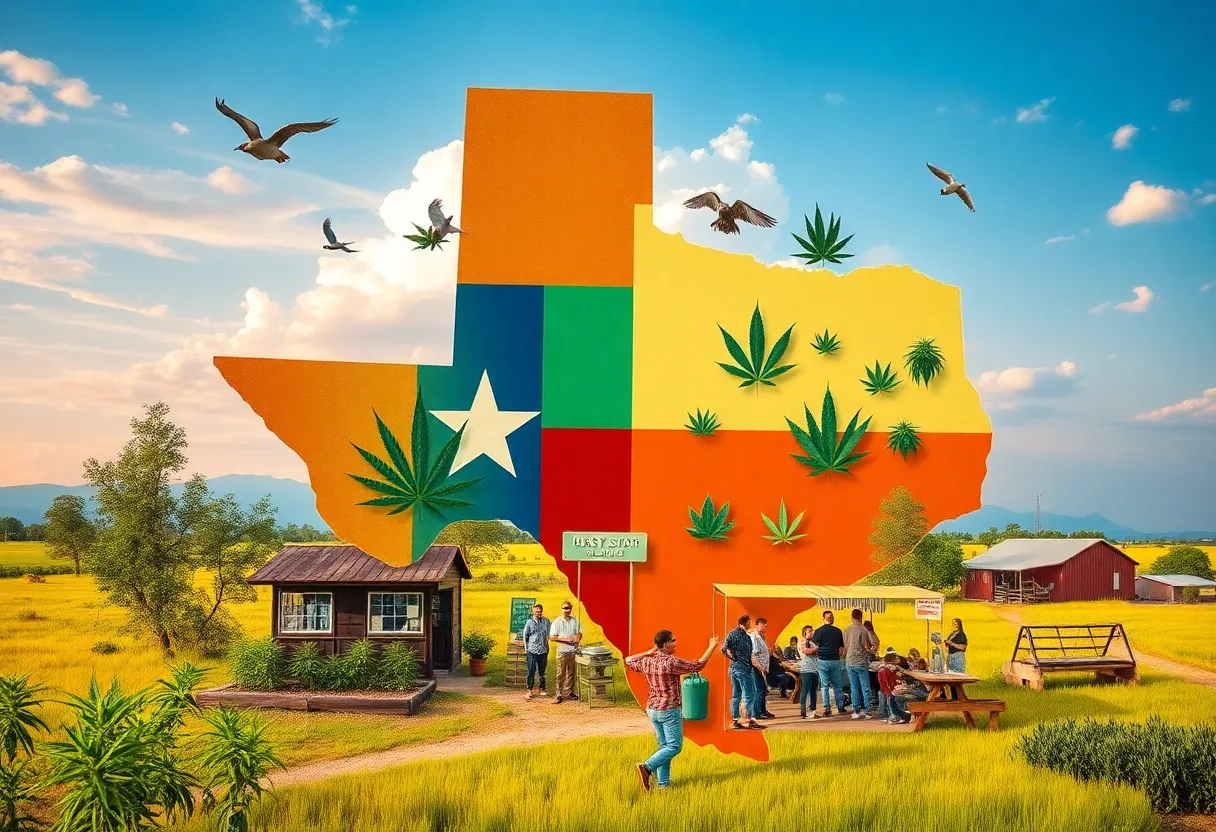

Texas Cannabis Industry
The Texas Legislature has passed Senate Bill 3, aiming to ban all THC products, shaking the state’s $10 billion cannabis industry. This legislation, supported by key political figures, has sparked concerns over its potential impact on local businesses and jobs. With the possible ban set to take effect in September, small shops could face closure while health concerns about high-potency cannabis products drive support for the bill. As the governor weighs his options, public sentiment seems to lean against an outright ban, raising questions about the future of cannabis in Texas.
AUSTIN, Texas – The Texas Legislature has passed Senate Bill 3 (SB 3), which aims to ban all products containing tetrahydrocannabinol (THC). This legislation, if signed into law by Governor Greg Abbott, is set to take effect in September and poses significant implications for the state’s booming $10 billion cannabis industry.
Supported by Lieutenant Governor Dan Patrick, the bill has been labeled a “life and death issue,” reflecting concerns from various sectors regarding public health and safety, particularly among minors. Medical professionals, including representatives from the Texas Medical Association, advocate for the ban, citing rising cases of Cannabis Use Disorder (CUD) and Cannabinoid Hyperemesis Syndrome (CHS) linked to high-potency THC products.
In Texas, the legal consumption of low-THC products has been restricted to individuals aged 21 and older since the legalization of hemp production in 2019. However, the popularity of THC products has surged, with over 8,000 retailers across the state experiencing substantial growth since the unintended legalization of certain hemp byproducts.
Aside from health concerns, the economic impact of SB 3 could be severe. The Texas hemp industry employs approximately 53,000 people, many of whom are involved in small, family-owned businesses. Retailers like Planet K, known for their diverse selection of THC products ranging from edibles to vapes, would be forced to pivot their business models, potentially sacrificing inventory for non-psychoactive alternatives such as cannabidiol (CBD) and cannabigerol (CBG).
Critics of SB 3 are advocating for a more regulated framework instead of a full ban. They argue that the legislation could devastate local businesses and farmers who rely heavily on the hemp market. While larger corporations may have the resources to relocate to states with more lenient regulations, smaller entities face the threat of closure due to the ban.
The Texas hemp law currently permits consumable products with up to 0.3% THC, but has allowed for the sale of intoxicating derivatives like Delta-8 and Delta-10 THC without any regulatory oversight. Opponents of the ban contend that regulation, rather than prohibition, would ensure that products are adequately tested and safe for consumers.
Many in the agricultural community, particularly farmers in West Texas, have expressed their worries about the impending ban’s repercussions on their livelihoods and the broader hemp sector. A coalition consisting of concerned Texans, including veterans and entrepreneurs, is mobilizing to petition against SB 3, emphasizing the projected loss of a $4.3 billion industry and the potential rise in unregulated products on the market.
The Texas Compassionate Use Program (TCUP) remains intact, permitting limited medical marijuana use for a small segment of the population. However, its narrow scope offers little relief to those who may seek broader access to cannabis products.
Polling data indicates that approximately 50% of Texas voters are opposed to a sweeping ban on THC products, with only 34% supportive of the legislation. Governor Abbott is faced with the decision to take action on SB 3 by June 22, with his options including signing the bill into law, issuing a veto, or allowing it to become law without his endorsement.
The outcome of this legislative decision will shape not only the health and safety landscape in Texas but also profoundly affect the state’s economy and the livelihoods of countless residents who depend on the booming hemp industry. As the deadline approaches, the stakes remain high for all parties involved in this contentious debate.
News Summary Governor Greg Abbott of Texas is facing criticism for refusing to release emails…
News Summary Texas has been ranked second in CNBC's annual list of the best states…
News Summary The Texas government has launched the Micro-Business Disaster Recovery (MBDR) Loan Program to…
News Summary In a remarkable display of community support, Prattville has launched the 'Texas Strong'…
News Summary Governor Greg Abbott has announced a new funding opportunity for Texas micro-businesses impacted…
News Summary The Travis County Commissioner’s Court met to discuss a petition to the Travis…